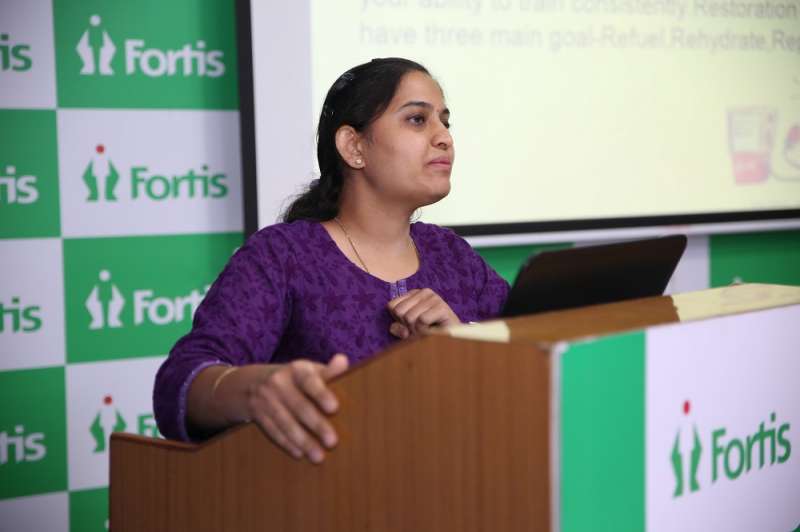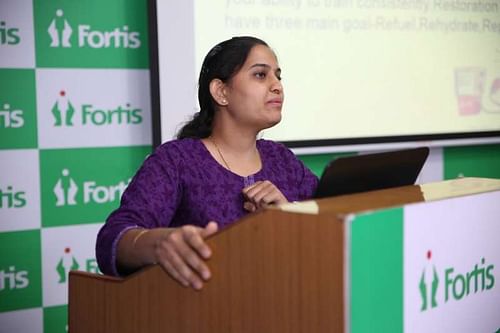
Fortis Hospital organizes session on health tips for TCS World 10K

In preparation of the TCS World 10K, Fortis Hospital, the event’s medical partner conducted a session to bring light on the importance of nutrition leading up to the event which is scheduled to be held on 15th May. Shalini Arvind, the Chief Dietician at Fortis Hospitals was the chief speaker at the event.
The most important advice that was given by Miss Arvind was to have a good routine when it comes to eating. For an amateur runner, it is important to have pre-exercise meals that will contribute to storing energy for exercise in the form of glycogen which is used during exercise. Along with pre-exercise meals, proper hydration is essential to keep your body active while exercising.
In the weeks leading up to the TCS World 10K, Ms. Arvind has advised maintaining a well-balanced diet that can be classified as ‘high carb’ with the protein to carbohydrate ratio being 4:1. For example, high carbs count as mashed bananas, potatoes, pastas, custard, etc. While high carbs are recommended to increase your energy stores 3-4 days before the TCS World 10K, excess protein can have a negative effect.
Examples of high carbs needed 3-4 days before the run include white rice, pastas, jams, bread spreads, honey, cheese (in small quantities) and refined sugar. Food items such as butter, ghee, and other dairy products should be omitted from your diet in the days leading up to the TCS World 10K run. Oily foods and products should be limited in the diet.
Essential points that were noted and stressed upon include the following:
- Getting your body used to drinking lots of water needs to begin in the weeks leading up to the run. At least 5 litres of water need to be consumed every day.
- Do not implement a crash diet in the days leading up to the run. Your body will not get used to it quickly for the effects to be noticed.
- Do not over eat on the night before the run because you might have a heavy stomach and certain digestion problems that could hamper your run. Foods to be avoided during this time include high-fibre foods (whole grain food, vegetables and fruits with skin); high-fat foods (dairy products, fried foods, etc)
- On the day of the run, 30 to 60 minutes before you actually begin the run, you can have a piece of fruit and remember to constantly hydrate with water.
The chief dietician couldn’t stress enough on the importance of hydration before, during and after the run. Less hydration could cause fatigue, headaches and giddiness that is detrimental to a successful run and also causes problems for recovery after your run. Besides hydration with plain water, you can also try having curd or coconut water or lime juice with a pinch of salt.
Points to remember:
- Stretching and warming up before and after the run is as important as following a proper nutrition plan in the weeks leading up to the run
- Knowing how far you can push your body and your body limits will help in a successful run